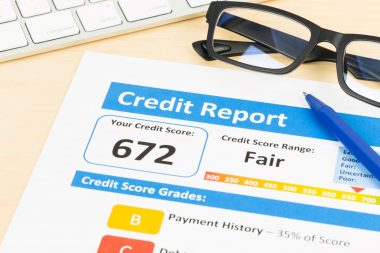The Winding Road of Credit – A Two Part Series

September 17, 2021
This month’s article comes directly from the desk of Reliable Credit’s CFO & Compliance Officer. This is the first in a series of two articles that look at the sometimes complicated and winding road of credit reports and credit monitoring.
Part 1 – Credit Reports
The Question
“Can I ask you a question about credit reports? Do you think it’s worth me getting my credit report just to check out the activity on it? I’ve never gotten one since I haven’t needed to. But with all the hacking lately I’m wondering if I should. And if so, the safest way to do so.” This is an exact text message I received from my sister last month. She is 33 years old, college-educated, and would be regarded as talented and intelligent by anyone who knows her. To say her question caught me off guard is an understatement. If my sister is asking these questions, surely millions of other people have the same questions.
It Can Be Tricky
Undeniably, the credit reporting “ecosystem” is complicated and constantly evolving. Unfortunately, as well, we are passengers merely along for the ride. Even if a school system’s curriculum includes financial literacy, credit reporting is specific and nuanced enough that it may only be an afterthought to a chapter about debt and financial obligations. Even the afterthought could be outdated as soon as it’s published. What makes matters worse is what my sister was concerned with: hackers and identity thieves are wreaking havoc on the ecosystem with increasing frequency and fervor.
Eyes On The Road
The important lesson here is that, as passengers, we need to keep our eyes on the road and speak up if the driver veers out of the lane. Put in terms of credit reporting, it is more important than ever that we actively monitor our credit reports for inaccurate and/or fraudulent information. No one else will do this for us. If that’s too burdensome, the alternative would be freezing your credit. That would hopefully prevent a fraudster from applying for credit with your information. However, it would not prevent inaccurate or fraudulent information from being introduced to your credit profile, i.e., what you see on your credit report. It would also shift the burden from actively monitoring your credit to remembering to unfreeze your credit each time someone needs to access your credit report (creditors, landlords, employers, etc.). While consumer reporting agencies (CRAs) have made freezing and unfreezing credit easier to do in recent years, ask yourself if you’ll remember to do it and if you’ll remember how to do it.
Get Your Reports
The advice I gave to my sister was simple: Absolutely get your credit reports and absolutely find an app that will let you monitor your credit on an ongoing basis. Federal law requires each of the three major CRAs, Experian, Transunion, and Equifax, to provide free credit reports on an annual basis. During the COVID-19 pandemic, the CRAs are continuing to offer free weekly online credit reports. These free reports will contain everything from your credit profile except a credit score. Credit score aside, it’s important to review the contents of each individual credit report for anything inaccurate. If anything inaccurate is identified, it’s then up to you to dispute the inaccurate information with either the company that furnished the information or with the applicable CRA(s). You may also purchase a credit report that includes a credit score.
Part 2 in this series that discusses the pros and cons of credit monitoring can be found here.
Contributed by: Brett B.